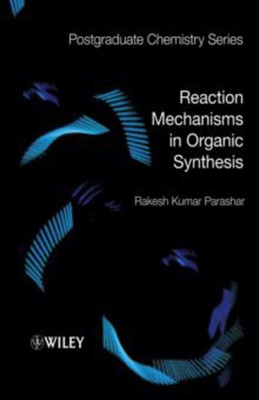Reaction Mechanisms in Organic Synthesis(English, Paperback, Parashar Rakesh Kumar)
Quick Overview
Product Price Comparison
Organic chemistry is a core part of the chemistry curricula, and advanced levels texts often obscure the essential framework underlying and uniting the vast numbers of reactions as a result of the high level of detail presented. The material in this book is condensed into a manageable text of 350 pages and presented in a clear and logical fashion, focusing purely on the basics of the subject without going through exhaustive detail or repetitive examples. The book aims to bridge the gap between undergraduate organic chemistry textbooks and advanced level textbooks, beginning with a basic introductory course and arranging the reaction mechanisms according to an ascending order of difficulty. As such, the author believes the book will be excellent primer for advanced postgraduates Reaction Mechanisms in Organic Synthesis is written from the point of view of the synthetic organic chemist, enabling students and researchers to understand and expand on reactions covered in foundation courses, and to apply them in a practical context by designing syntheses. As a further aid to the practical research student, the content is organized according to the conditions under which a reaction is executed rather than by the types of mechanisms. Particular emphasis is placed on controlling stereospecificity and regiospecificity. Topics covered include: Transition metal mediated carbon-carbon bond formation reactions Use of stabilized carbanions, ylides and enamines for carbon-carbon bond formation reactions, Advanced level use of oxidation and reduction reagents in synthesis. As a modern text, this book stands out from its competitors due to its comprehensive coverage of recently published research. The book contains specific examples from the latest literature, covering modern reactions and the latest procedural modifications. The focus on contemporary and synthetically useful reactions ensures that the contents are specifically relevant and attractive to postgraduate students and industrial organic chemists.


